Ignoring those little (or big) problems in your home won’t make them magically disappear. They’ll just become bigger, uglier, and more costly. Here’s why you need to take a “home health check” at least twice a year.
Deferred maintenance is defined as the act of postponing repairs on real and personal property, in order to save money or because people don’t have the time and patience to deal with it.
I have a slightly alternative definition, however: Deferred maintenance is a way of putting off tasks today which, down the road, will cost significantly more money and take more time. It’s rather like neglecting to care for one’s teeth because floss is an extraneous expense and brushing eats up so many valuable minutes in the day. Eventually, you’ll end up with a hefty dental bill.
Ugly secrets caused by deferred maintenance are often lurking inside the most beautiful homes with the most elegant furnishings. In my line of work, I spend a great deal of time in lovely properties. Sadly, I sometimes uncover the most egregious, hideous examples of deferred maintenance—some of which have become actual health hazards.
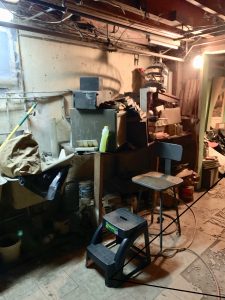
These broken asbestos floor tiles are causing a health hazard. One broke, which loosened the next, which also broke, and so on.
This can all be avoided with some observation and foresight.
Creeping Black Mold
Here’s an example: A pipe has burst in a little-used bathroom, so you decided to simply shut the water off and ignored the problem. If you didn’t take the time to open up the wall and the ceiling below, allowing everything to dry out properly, you could have let in an unwanted visitor: black mold! Once mold appears, it’s like the camel’s nose entering the tent—the rest of the body soon follows. Mold spreads rapidly and will need professional remediation, including chemical sprays to treat it.
What’s your alternative? Well, if you’d called in a plumber the moment the situation was discovered, it could have been ameliorated quickly. It would have cost you the labor of the plumber and painter as well as some time (two days out of your life), but would have saved you thousands in the long run.
Speaking of mold, unfinished basements and crawl spaces should always have a dehumidifier. I have seen them in most situations. But most people never bother to clean the filters in the dehumidifiers causing them to clog and to stop working. Chances are, your dehumidifier is emptying into a sump pump. But does your sump pump have an alarm that lets you know when water is backing up? Sump pumps break. I should know because mine finally died. The water sensor was the only thing that prevented a disaster in my crawl space. And even in the short time it took for the plumber to replace the pump and clean the mess, there was evidence of the beginnings of mold.
Outmoded Outlets
Sometimes when I’m involved in a move, the movers will come across obsolete two-pronged extension cords plugged into power strips. I quickly snatch those up and dispose of them, rather than allow them to go into a box and be delivered to the next house. These electrical rat’s nests are fires just waiting to happen!
When an outlet in the wall ceases to function, some clients just mosey along and plug their old-fashioned, two-pronged extension cord into the next available outlet. By doing so, they are overloading their electricity and funneling it into a dangerous temporary solution.
Outdated electrical outlets are more common than you would imagine. I recently helped move someone from a magnificent home that they had lived in for 43 years. All of the outlets had 2 holes. None had the third grounded hole. Replacing/updating electric receptacles is maintenance you should not defer. In bathrooms, kitchens, and exteriors, where water might be present, you need to install GFCI (Ground Fault Circuit Interrupter) receptacles (also commonly known as GFIs) so as to avoid electrical fires. You’ll recognize these because they include a “reset” button.
Dusty Heating/Air Conditioning Ducts
It’s hard to imagine that people who live in beautiful homes with expensive furnishings don’t think of cleaning the ductwork, but they often don’t. Your HVAC ducts should be checked and cleaned at least every 4-5 years. Ductwork does separate over time as the connecting duct tape loosens. Have you ever felt that one room was not as warm or cool as the rest of the home? Chances are the duct work developed a gap. There are companies that clean and check ductwork and the process is painless and quick. Sometimes your HVAC company does this. If not, they could recommend a company they trust. The cost of not maintaining your ducts will be felt in your lungs as well as in the temperature fluctuations within your home.
Twice Annual HVAC Maintenance
Changing the filters for your furnace and air-conditioning not only keeps your home cleaner, it also helps the equipment run more efficiently and prevents possible and expensive problems. Think of these visits as wellness check-ups at the doctor. Additionally, if you have an ongoing maintenance contract, you will be first in line for priority service if something does break down.
The flexible exhaust duct from your clothes dryer should be cleaned once a year as well. If not, you could become witness to truly disastrous, spontaneous combustion. I’ve also seen instances in which the hose that vents the dryer became disconnected from the vent to the exterior of the home, shooting out a blast of flammable lint into the attic or basement crawl space. There is no good reason to defer this sort of maintenance.
Rotten Roofs
There is an old joke about why someone doesn’t fix a leak in the roof: “When it don’t rain, the roof don’t leak; when it rains, it’s too wet to fix it.” Classic deferred maintenance!
People install 20-30 year roofs and expect them to last 20-30 years. But we don’t live in a lab—especially in the Northeast. We live in sleet, snow, ice, heat, rain, and wind. If your roof is showing signs of age, it’s better to take out your checkbook now. If you wait, your roofers will have to rip out and replace major sheets of plywood. Every time they rip and bang, dirt and debris will cascade into your attic. The vibrations throughout the house can even cause art to swing and recessed lighting fixtures to drop! Plus, all that pounding will give you a migraine. And we haven’t even spoken about the damage to walls and ceilings as well as ceiling mounted lighting that a leaky roof can cause. I will leave those to your imagination. Just think about a parade of painters and electricians trooping into your home, and perhaps water damage to draperies and clothing in closets.
Appliance Agonies
Appliances these days have a lifespan of 7-10 years; unfortunately, they don’t make them like they used to. When you sense trouble, act. An emergency replacement doesn’t give you time to do proper research, and the decision-making process is rushed.
For example:
- The toilet begins to make a trickling noise. That means it’s leaking. Soon, that little trickle will turn into a flood. It could be something as minor as the ball-cock mechanism in the tank. Please call the plumber if you don’t know how to replace it.
- Your once-glorious shower time starts to get shorter and shorter because the water unexpectedly turns cold, and you end up with flat, listless hair because you haven’t had time to rinse out your conditioner. Your hot water heater may need to be replaced. They last for 15 years max. And if you wait until the water heater starts to leak—well, we have already addressed water damage.
- Your 10-year-old air conditioner is chuffing and rattling away, but you still feel reasonably cool, right? Wait until it dies on a hot July night—you’ll wish you spent the money to replace it sooner!
- The water from kitchen tap is gruelingly slow because the screen has become clogged with minerals. This one is easy: You can simply unscrew the screen and clean it, or rubber-band a baggie of white vinegar around the tap to dissolve the minerals. Or, you could wait until the faucet backs up and explodes. Your choice! (this applies to the shower head and other faucets as well.)
- A persistent drip has started to leave terrible stains in a bathtub. But it’s just a drip, right? By the time the stain turns brown, there is no way to get it out. If you hope to sell your home soon, this is the sort of thing that really turns potential buyers off. Fix the leak. Or you will be purchasing a new tub.
- In your shower, the grout where the tile floor meets the tile wall has decayed and/or washed away. There is a thick line of black mold now residing there. You could attempt to clean it and apply clear caulk over the area, effectively trapping the black gunk inside the wall where it will continue to grow. Or you could pay a professional to scrape out the grout, treat it, and then re-grout it. New grout can be sealed and it will last longer.
Deferred maintenance seems easy, at first glance. But fixing things immediately is so much smarter, and it really isn’t that hard. Some of you are very handy do-it-yourselfers. It is time to set aside some time and just do it!
Old and on the Verge of Breaking
Senior citizens are not as observant as they used to be. They suffer from aches and pains, their eyesight is failing, and they are more concerned about maintaining their own aging bodies than they are their homes. Similarly, their adult children are more worried about taking care of their parents then they are about the septic system or the strange “thunking” noise from the washing machine.
But it’s not just the elderly who ignore key maintenance issues. We all do it. Maintaining your home means being alert and looking at things. You need to take an hour 2-3 times a year to inspect your home and all its nooks and crannies. Put it in your calendar: “This is the day to examine my house.” You can prevent an event that is going to cost you time and money.
(Can’t or won’t do it yourself? Then please pay someone else to do it for you. You will be grateful that you did.)
What have you seen or experienced as a homeowner or a tenant in the way of deferred maintenance? I’d love to hear your comments. Please do share them.
My next blog will cover spring cleaning—which we will appropriately discuss once summer has arrived, in June. (Perhaps we’ll call it “deferred spring cleaning”—no one is perfect, after all.)
Until then, please reach out to me with any questions.
Best wishes,
Sharon
646-784-3073
www.360demenager.com
Subscribe to Receive My Newsletter:

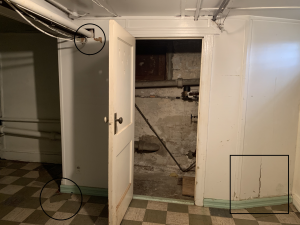
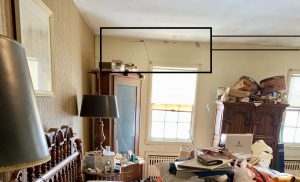
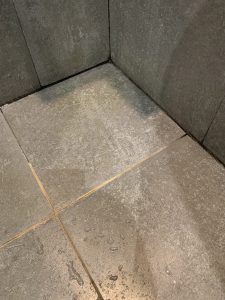
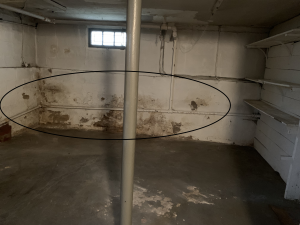
Recent Comments